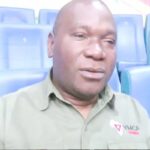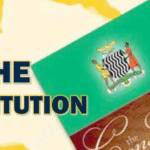BY now, the politicking ought to be over and all Zambians across the political divide must focus on rebuilding the country’s economic and political fortunes.
And one way of doing this is by avoiding the loose talk on the country’s debt stock which is not helping anyone.
Instead, it is creating more confusion in the nation.
The call by the Centre for Trade Policy and Development (CTPD) to the government to avoid giving premature statements on the state of public debt makes sense.
This is because there does not appear to be a definite figure that the nation or the public could believe as being a true reflection of what the country is owing.
While the nation has been officially informed through the National Assembly that the country’s foreign debt is US$12.9 billion, the President, Mr Hakainde Hichilema has also given his own figure, that the debt is over US$35 billion.
We agree with the CTPD Director, Mr Isaac Mwaipopo that the government stops making statements until it has a consolidated position informed by facts.
Zambia’s total Government external debt as at June 2021, stood at US$14.48 billion including money owed by state companies.
Excluding parastatal debt, Zambia’s external debt in that month was estimated at $12.91 billion, according to Government official statistics.
Responding to these statistics, the CTPD (US$14.48 billion) expressed concern on the inconsistencies in the pronouncements made by Government officials on the stock of public debt.
As Mr Mwaipopo noted, “We have observed with concern, inconsistencies in the pronouncements made by the Republican President and the Minister of Finance on the stock of public debt, with earlier pronouncements pointing to a possible hidden debt stock under the previous administration,” he said.
These inconsistent statements must also be having a negative effect on the country’s economic prospects as FDD president Edith Nawakwi has said.
According to Ms Nawakwi, the negative narrative by President Hichilema on the country’s debt has contributed to the poor performance of the Kwacha as investors are scared to invest in the country.
It is important that Government, as observers have pointed out, agree on a definitive figure of what the country’s foreign debt is, and all work towards reducing that debt.
The insinuations of there being a hidden debt or secret account at the Ministry of Finance will not help anyone.
What must dictate the country’s economic policy are figures that anyone could access and not those in someone’s head which simply translated is playing the blame game against the former government.
The new dawn government must take advantage of the positive ratings the country has gained since the August 12 general elections to more the country forward.
It should avoid what Ms Nawakwi said, that in trying to embarrass his predecessor by indicating that the national debt stood at US$35 billion instead of the actual US$12 billion, the head of State caused panic among investors because it meant that it was risky to conduct business in Zambia with high debt figures.
Henceforth, the politicking must stop and serious work must start.










